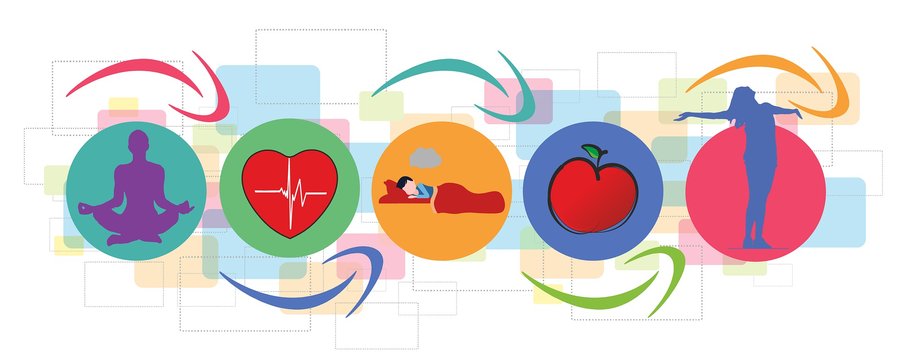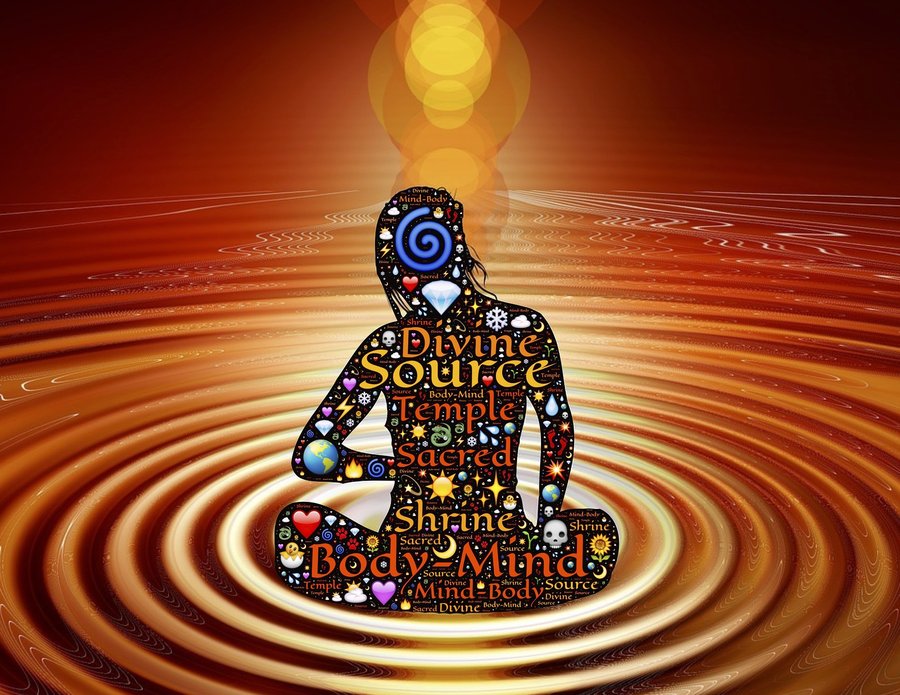Gratitude is more than just saying “thank you” or feeling appreciation—it is a transformative practice that can enhance our well-being and reshape our outlook on life.
At its core, gratitude is about recognizing and acknowledging the positive aspects of our lives, no matter how small or significant they may seem. It’s about cultivating a mindset of appreciation and opening ourselves up to the remarkable power that gratitude holds.
Gratitude is a deep sense of thankfulness and appreciation for the blessings, experiences, and people that enrich our lives. It is a practice that goes beyond surface-level politeness or social convention.
When we cultivate gratitude, we consciously shift our focus from what is lacking or negative to what we have and the positive aspects of our lives. By actively acknowledging and expressing it, we tap into a wellspring of joy, contentment, and inner peace.
The importance of cultivating gratitude extends far beyond mere politeness or good manners. Research has shown that gratitude has profound effects on our overall well-being—mentally, emotionally, and physically.
By intentionally nurturing gratitude in our lives, we can experience a multitude of benefits, ranging from improved mental health and emotional resilience to enhanced physical health and stronger relationships.
In a world that often emphasizes what we don’t have or what’s going wrong, cultivating gratitude becomes an essential practice for finding balance, perspective, and happiness.
In this blog post, we’ll dive into the awesome impact that gratitude can have on your mind, emotions, and body.
Let’s cultivate a mindset of appreciation, celebrate the blessings in our lives, and discover the transformative power of gratitude to boost our well-being inside and out.
Related article: The Beginner’s Guide to Gratitude: How It Can Help You Live a Happier, More Fulfilling Life
The Science of Gratitude: Understanding the Research Behind It
Numerous scientific studies have shed light on the profound effects of gratitude on our well-being. Research consistently demonstrates that cultivating gratitude leads to positive psychological and physiological outcomes.
For instance, a study conducted by psychologists at the University of California, Davis, revealed that expressing gratitude can improve overall mental health, reduce symptoms of depression, and enhance emotional well-being.
Neuroscientific research has shown that gratitude has a tangible impact on the brain. When you practice gratitude, it activates areas in the brain associated with reward and positive emotions. Neuroimaging studies have indicated that expressing gratitude stimulates the release of dopamine, a neurotransmitter linked to pleasure and motivation.
Furthermore, gratitude promotes positive emotions by shifting your attention away from negativity and fostering an optimistic mindset. It helps you notice and appreciate the good things in your life, even amidst challenges.
The practice of gratitude encourages a perspective of abundance and contentment, allowing you to savor positive experiences and find joy in the present moment.
The connection between gratitude and improved physical health
The benefits of gratitude extend beyond your mental and emotional well-being to positively impact your physical health.
Gratitude can boost your immune system, enhance cardiovascular health, and even reduce the experience of physical pain. Moreover, gratitude has been linked to improved sleep quality, reduced blood pressure, and a decreased risk of developing heart disease.
The connection between gratitude and physical health can be attributed, in part, to the stress-reducing effects of gratitude. Chronic stress takes a toll on your physical well-being, and gratitude acts as a powerful antidote by lowering stress levels and promoting relaxation.
By reducing stress, gratitude helps create an environment within the body that supports overall health and vitality.
Understanding the scientific research behind gratitude reinforces the significance of incorporating this practice into your life. By harnessing the power of gratitude, you can positively influence your mental and emotional states, reshape your brain’s neural pathways, and enhance your physical well-being.

10 Mental and Emotional Benefits of Gratitude
Taking a few minutes each day to focus on things you’re thankful for can do wonders for your mental well-being.
The following mental and emotional benefits showcase the transformative power that practicing gratitude can have on our lives.
- Enhances Emotional Resilience:
Gratitude cultivates a resilient mindset by helping you to focus on the positive aspects of life, making you better equipped to navigate through challenging times with grace and optimism. - Boosts Self-Compassion:
When you practice gratitude, you’re more compassionate with yourself, treating yourself with kindness and understanding. It encourages a gentle inner dialogue, which helps you embrace your imperfections and appreciate your inherent worth. - Deepens Empathy and Connection:
Expressing gratitude promotes empathy and compassion towards others. It helps you recognize the kindness and support you receive, fostering deeper connections and a greater sense of belonging. - Enhances Emotional Intelligence:
Gratitude cultivates emotional intelligence by increasing your awareness and understanding of your own emotions and the emotions of others. It enables you to navigate interpersonal relationships with empathy, authenticity, and sensitivity. - Reduces Rumination:
Being grateful can put a stop to negative thoughts and redirect your attention to the good things in your life. It frees you from unhelpful thinking habits that can keep you from mental clarity and peace of mind. - Increases Resonance with Nature:
Gratitude encourages a deeper connection with nature, instilling a sense of awe and reverence for the natural world. This connection promotes feelings of serenity, harmony, and interconnectedness. - Fosters Emotional Healing:
Gratitude supports emotional healing by allowing you to acknowledge and process difficult emotions while also finding solace in the positive aspects of your life. It nurtures a sense of hope and resilience in the face of emotional challenges. - Amplifies happiness, a positive mood, and contentment:
Gratitude magnifies feelings of joy, contentment, and satisfaction. It helps you savor the present moment and find beauty in everyday experiences, enriching your overall emotional well-being. - Reduced stress and anxiety:
Gratitude serves as a powerful antidote to stress and anxiety by shifting your focus from worry and fear to appreciation and abundance. It activates the relaxation response in the body, lowers cortisol levels, and promotes a sense of calm and peace. - Enhanced self-esteem and self-worth:
Practicing gratitude nurtures a deep sense of self-worth and fosters a positive self-image. By acknowledging and appreciating your strengths, accomplishments, and qualities, gratitude helps to counteract self-doubt and negative self-talk.It cultivates a compassionate and empowering relationship with yourself, enhancing your self-esteem and confidence in your unique abilities and value as an individual.
5 Physical Benefits of Gratitude
These physical benefits of gratitude demonstrate the significant impact that practicing gratitude can have on your overall physical health, supporting a stronger immune system, better sleep, pain management, cardiovascular health, and increased vitality.
- Boosted immune system and overall health:
Gratitude has been shown to have a positive impact on our immune system, promoting a stronger defense against illnesses and supporting overall well-being.It activates the relaxation response, reduces stress-related hormones, and encourages a healthy balance within the body.
- Improved sleep quality:
When you practice gratitude before bed, it can have a profound effect on your sleep quality. It helps calm your mind, eases tension, and shifts your focus from worries to gratefulness and peace.This promotes deep and restful sleep that leaves you feeling rejuvenated and refreshed in the morning.
- Reduced symptoms of pain and inflammation:
By simply practicing gratitude, you can not only promote relaxation and a positive mindset but also decrease painful symptoms of inflammation. It’s a natural way to support your body’s healing processes. - Lowered blood pressure and improved cardiovascular health:
Expressing gratitude has been associated with lower blood pressure and improved cardiovascular health.Gratitude’s positive effect on stress reduction and emotional well-being contributes to a healthier heart and vascular system, reducing the risk of heart disease and other cardiovascular conditions.
- Increased energy and vitality:
Gratitude can invigorate and energize you by helping you focus on the blessings in your life. When you take time to be thankful, you fill yourself with renewed vitality and enthusiasm.This leads to better physical performance, more motivation to exercise, and a greater passion for life!
Practicing Gratitude in Challenging Times
Sometimes, life gets tough and it may seem impossible to find the positives. However, taking a moment to practice gratitude can truly help shift your focus to appreciate the good things in your life.
When faced with difficult circumstances or overwhelming emotions, intentionally focusing on gratitude helps to shift your perspective and uncover silver linings amidst the storm. It allows you to acknowledge the blessings, small joys, and acts of kindness that surround you, even amid hardship.
When you cultivate gratitude, you tap into a wellspring of strength and optimism that empowers you to face challenges with renewed hope and thankfulness for the lessons they bring.
In tough times, gratitude can help reframe your experiences, nurture your emotions, and boost resilience. Try journaling, thanking others, or simply taking time to reflect and let gratitude work its magic.

Gratitude Beyond Yourself: The Ripple Effect
Gratitude has a ripple effect that extends far beyond ourselves, touching the lives of those around us and creating a positive impact on our social connections and collective well-being.
When we cultivate gratitude, we naturally become more aware of the kindness and support we receive from others. This heightened awareness strengthens our social bonds and fosters a sense of belonging and interconnectedness.
Engaging in acts of kindness and generosity is an integral part of practicing gratitude. When you express gratitude by giving back and helping others, you contribute to the well-being of your communities.
Whether through volunteering, offering a kind word, or supporting someone in need, these acts of kindness create a positive cycle of gratitude and generosity, uplifting both the giver and the recipient.
Gratitude has the power to extend beyond yourself and influence collective well-being. When you cultivate gratitude and express it openly, you inspire others to do the same. Your gratitude becomes contagious, spreading positivity, and fostering a culture of appreciation.
In this way, gratitude becomes a catalyst for building stronger, more compassionate communities where individuals support and uplift each other.
Transform Your Life by Seeing the Good in Others
By seeing the good in others, gratitude transforms your perspective and enhances your relationships.
When you approach interactions with gratitude, you naturally focus on the positive qualities and actions of those around you. This shift in perception strengthens your connections, deepens your empathy, and fosters a sense of unity.
Through gratitude, you learn to appreciate and celebrate the unique contributions of others, creating a harmonious and supportive environment.
In embracing gratitude beyond yourself, you unlock the power to create a ripple effect of positivity and compassion.
By recognizing the social benefits of gratitude, engaging in acts of kindness, extending gratitude to others, and seeing the good in those around you, you contribute to collective well-being that uplifts individuals and communities alike.
In Conclusion
In conclusion, gratitude is a remarkable force that has the power to boost your well-being inside and out.
Practicing gratitude in challenging times becomes even more crucial as it helps you find silver linings, maintain a positive perspective, and navigate through adversity with resilience.
Furthermore, gratitude goes beyond yourself and creates a ripple effect that extends to your social connections and communities. It fosters a culture of appreciation, empathy, and collective well-being.
So, let’s take the time to reflect on and appreciate the abundance of blessings and experiences, big and small. Through gratitude, we can cultivate a profound sense of joy, contentment, and connection. Let gratitude become a guiding light that illuminates our path and transforms our lives.


0 Comments